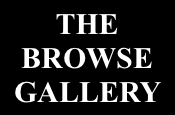
Oskar Pastior was a German writer of Romanian origin.
The author was a preeminent representative in 20th century German-language literature of a poetry that develops language play and word artistry. Many of his poems are also published as audio books, in which Pastior reads himself. For his poetry is above all sound poetry, word acrobatics that want to be heard. There are echoes of nonsense poetry and references to the sound poetry of Dadaism. Pastior was the only German member of the internationally renowned literary group OULIPO, Workshop for Potential Literature.
Works include: "Vom Sichersten ins Tausendste" (1969), "Fleischeslust" (1976), "Wechselbalg" (1980), "Jalousien aufgemacht" (1987), "Kopfnuss Januskopf" (1990), "Feiggehege" (1991), "Eine kleine Kunstmaschine. 34 Sestinen" (1994), "ügel beg und ügel tal" (Ged., CD, 1997).
Oskar Pastior was born in Sibiu in 1928 as a member of the German minority of the Transylvanian Saxons. His father was a drawing teacher. In January 1945, Pastior was used as a forced laborer in labor camps in the course of the deportation of Romanian Germans to the Soviet Union. It was not until 1949 that he was able to return to Romania. Here he lived on unskilled and casual labor in the following years. During the subsequent three years of military service in the Romanian army, he took correspondence courses to obtain his high school diploma. From 1955 to 1960, he studied German at the University of Bucharest and passed his state examination there. From 1960 he was an editor at the German-language domestic department of the Romanian State Radio.
In 1968 Pastior took advantage of a study visit to Vienna to escape and went to West Berlin. Here he lived since 1969 as a freelance writer and translator, among others for works by Tristan Tzara.
Oskar Pastior died on October 4, 2006, during the Frankfurt Book Fair. Pastior is buried in Berlin.
After his death, Pastior came under criticism when it became known that he had been an unofficial employee of the Romanian secret service Securitate in the 1960s. A reappraisal of his involvement took place, which on the one hand led to partially exonerating results, but on the other hand also to contrary assessments by colleagues and experts.
The estate of Oskar Pastior has been housed in the German Literature Archive in Marbach since 2007. Parts of it can be seen in the permanent exhibition at the Literaturmuseum der Moderne in Marbach.
AWARDS
Oskar Pastior has received numerous awards, including: 1969 Andreas-Gryphius-Förderpreis, 1997 Horst-Bienek-Preis for poetry, 2001 Peter-Huchel-Preis. On October 21, 2006, he was to receive the Georg Büchner Prize in Darmstadt; it was awarded to him posthumously.
The drawings of Oskar Pastior can be seen in all exhibitions of the Berlin Painter-Poets.

 Deutsch
Deutsch  English
English